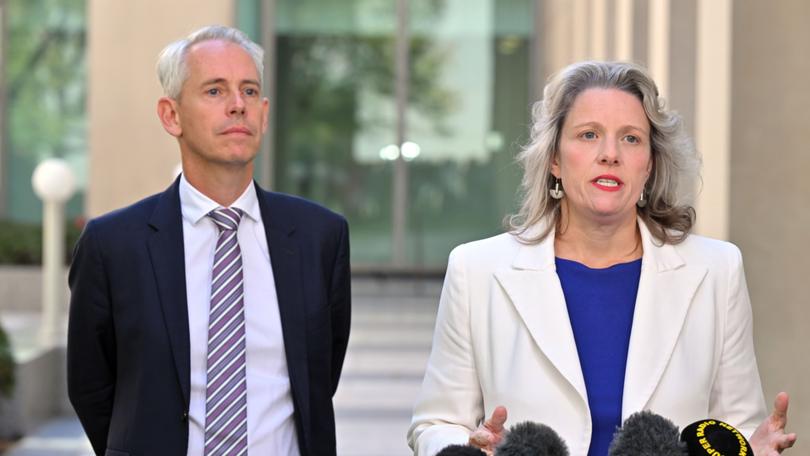Labor Government faces grassroots revolt over controversial deportation legislation
The Federal Government is facing an internal revolt of its contentious deportation legislation, with pro-refugee Labor members describing it as ‘huge over-reach’.

The Federal Government is facing a grassroots internal revolt over its contentious deportation legislation, with pro-refugee Labor members describing the emergency powers as “huge overreach”.
Labor for Refugees NSW/ACT is warning the legislation breaches the party’s own national policy platform, which opposes mandatory minimum sentencing.
The group’s concerns are detailed in a submission to a Parliamentary inquiry into the Bill, set up after the Coalition and the Greens joined forces to thwart Labor’s bid to rush it through the Federal Parliament.
Sign up to The Nightly's newsletters.
Get the first look at the digital newspaper, curated daily stories and breaking headlines delivered to your inbox.
By continuing you agree to our Terms and Privacy Policy.The emergency legislation is designed to make it easier for the Commonwealth to deport non-citizens who fail to cooperate with authorities.
It was supposed to pre-empt a High Court challenge — to be heard next Wednesday — from a man who was refusing to cooperate with the Government because he fears he could be harmed if he was deported back to Iran.
The legislation would allow the Government to impose a prison sentence of between one and five years on asylum seekers who refuse to co-operate with their deportation.
In a separate power which the Greens have labelled “truly Trumpian”, the Government would be able to block new visa applications from anyone seeking to come to Australia from places designated as “removal concern countries”, such as Iran.
A Senate committee comprising Labor and Liberal members earlier this month sounded the alarm about the Bill, including the use of mandatory minimum sentencing.
In a submission published on Thursday, Labor for Refugees NSW/ACT secretary Nizza Siano referenced those “flaws” and said the group shared the long list of human rights concerns that the Law Council of Australia had with the Bill.
Ms Siano said the legislation was “probably a case of huge over-reach”.
“Can this really be the best way to respond to the fact that there may be as few as 170 to 1000 people in Australia who do/will not have visas and who thus far cannot be persuaded to leave and who cannot be lawfully detained?” he wrote in the submission.
“How was this issue dealt with in the past and how is it dealt with by countries which respect international law and human rights?”
Ms Siano acknowledged Foreign Minister Penny Wong’s assurance that the extraordinary powers would be rarely and wisely used.
“But not all Ministers for Immigration are kind and wise; some are the opposite,” he said.
“Governments change also. Social panics with strong racist goals can create political imperatives to issue directions to noncitizens to co-operate for all the wrong reason.”
Ms Siano urged the Parliament to avoid passing a Bill which was an example of “law-making on the run and will do more harm than good”.
